Question 1 Each of these cartoons represents a challenge to democracy. Please describe what that challenge is. Also place it in one of the three categories mentioned in the first section
Question 2. Complete the table given below:
Answer 2
Question 3 Given below are some spheres or sites of democratic politics. You may place against each of these the specific challenges that you noted for one or more countries or cartoons in the previous section. In addition to that write one item for India for each of these spheres. In case you find that some challenges do not fit into any of the categories given below, you can create new categories and put some items under that.
Answer 3
Question 4. Let us group these again, this time by the nature of these challenges as per the classification suggested in the first section. For each of these categories, find at least one example from India as well.
Answer 4
Question 5. Now let us think only about India. Think of all the challenges that democracy faces in contemporary India. List those five that should be addressed first of all. The listing should be in order of priority, i.e., the challenge you find most important or pressing should be mentioned at number 1, and so on. Give one example of that challenge and your reasons for assigning it the priority.
| Priority | Challenges to democracy | Example | Reason for preference |
| 1 | Foundational challenge | A few reforms should be made in our Constitutional designs so that present challenges of the country may be resolved smoothly |
The world is changing fast. Some reforms in the constitutional designs would help India keep pace with the world. |
| 2 | Challenge of expansion | Division of power among various units of the government. |
India is a vast country with a lot of diversities. In such a case it is essential to give power to the local self government. |
| 3 | Challenge of deepening | Women and disadvantaged groups should be given representation. | Women and disadv- antaged groups such as SCS and STs are also the citizens of India. They should be given equal status in the society. |
| 4 | Challenge of corruption | Wealth and properties that politicians possess. | Politicians should be restricted to accumulate immense wealth. |
Question 6. Here are some challenges that require political reforms. Discuss these challenges in detail. Study the reform options offered here and give your preferred solution with reasons. Remember that none of the options offered here is ‘right’ or ‘wrong’. You can opt for a mix of more than one option, or come up with something that is not offered here. But you must give your solution in details and offer reasons for your choice.
Answer 6
| Doctors’ absenteeism Challenge: In a survey Uttar Pradesh government found that most of the doctors posted in the rural primary health centres don’t live in villages and practise there. Rather they live in a town, carry out private practice and visit the villages once or twice monthly. Villagers have to travel to towns and pay very high fee to private doctors even for normal diseases. |
Political funding Challenge: Almost every candidate who contested the last Lok Sabha elections owned a property of more than one crore. Most of the political parties are dependent on money given by big business houses which will eventually reduce the role of the poor in democracy. |
| Reform proposals: | Reform proposals: |
| — The government should ma compulsory for the doctors to in the village where they are posted otherwise their service should be terminated. |
—The financial accounts of every political party should be examined by government auditors. |
| — Village panchayat should be given the power to write the annual report Of the doctor which should be read out in the gram sabha meeting. |
— There should be state funding Of elections. Parties should be given some money by the government to meet their election expenditure. |
| — Uttar Pradesh should be split into several smaller states which can be administered more efficiently. |
— Citizens should be encouraged to give more donations to parties and to political workers. Such donations should be exempted from income tax. |
| Suggested options | Suggested options |
| — Doctor’s visits in the village hospitals (where they are posted) should be made compulsory and a proper record should be kept about the same. |
— State government should keep a check on the money spent by the political parties during elections and state funding of elections should be incorporated. |
| — Absenteeism should be taken strictly and they should be expelled from the services if found guilty. Special staff should be appointed to keep a check on them and they should frequently make surprise visits to control doctors’ absenteeism. |
—Party leaders spending more money than fixed by state government should be answerable to the government. |
Question 7. Here is your space for writing your own definition of good democracy. (Write your name here) ………………… ’s definition of good democracy (not more than 50 words). Features (use only as many points as you want. Try to compress it in as few points as possible)
Answer 7 Good democracy. A form of government in which the supreme power is vested in the people and exercised directly by them. Features
1. Constitutional design
2. Democratic rights
3. People’s rule
4. Free and fair elections
5. Federalism-decentralisation
6. Accommodation of diversities
7. Political organisations
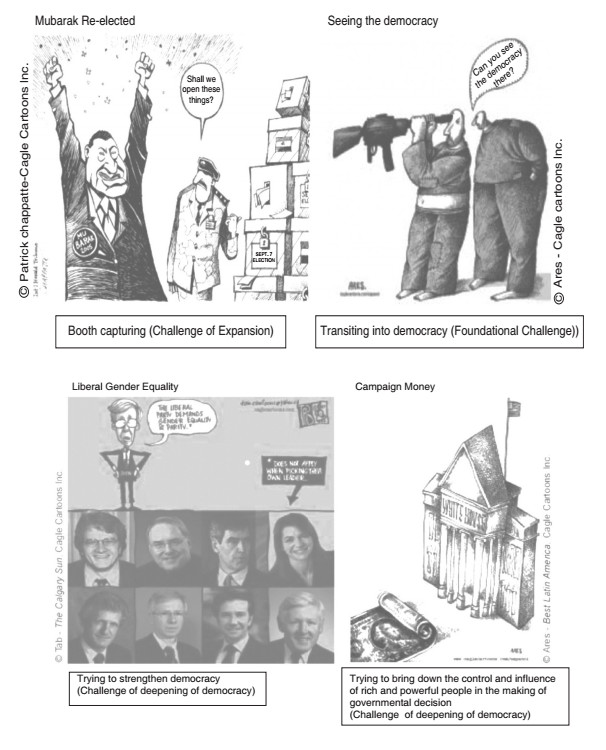
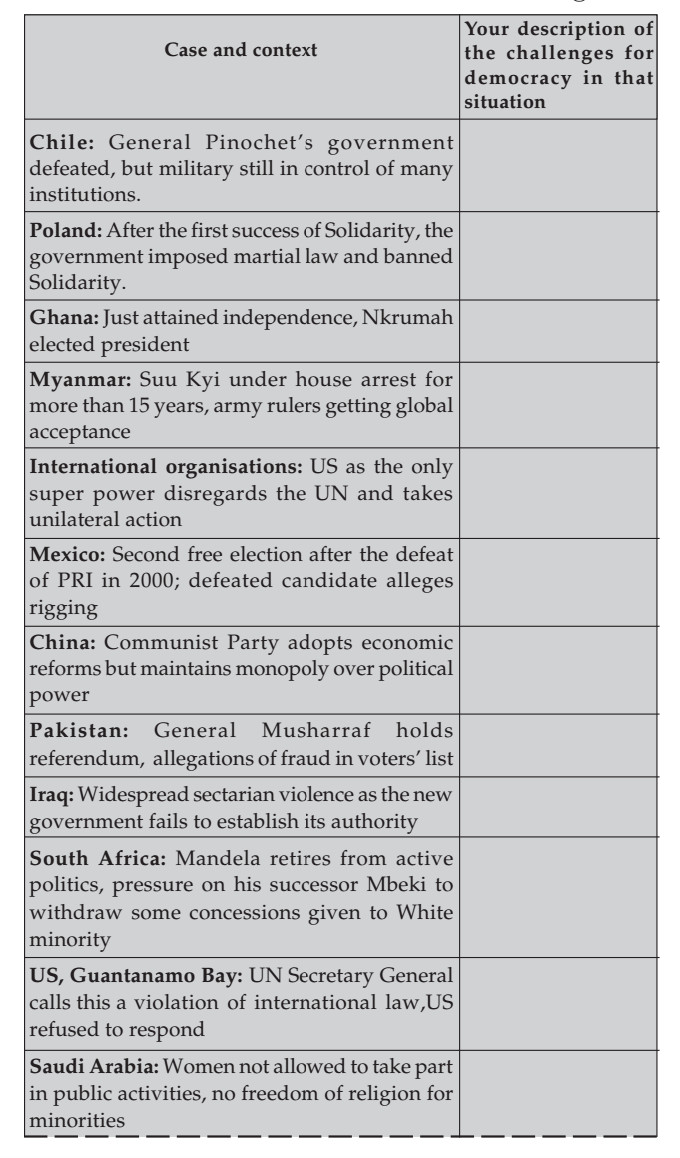
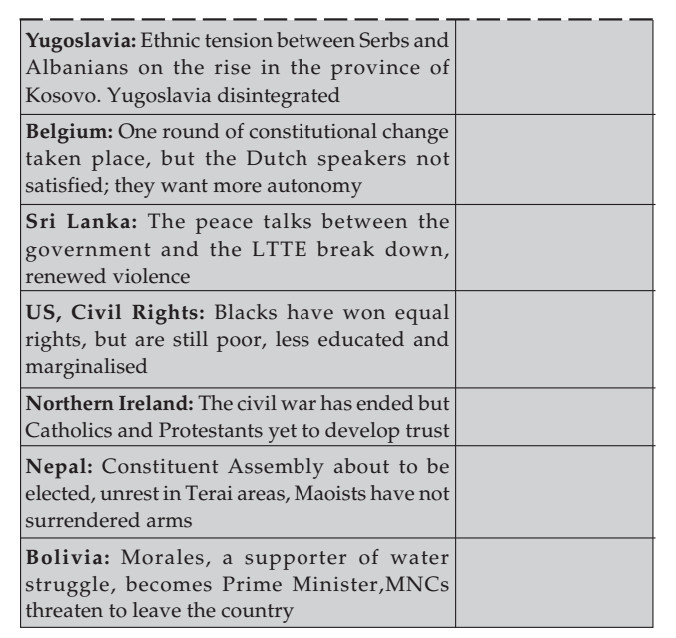
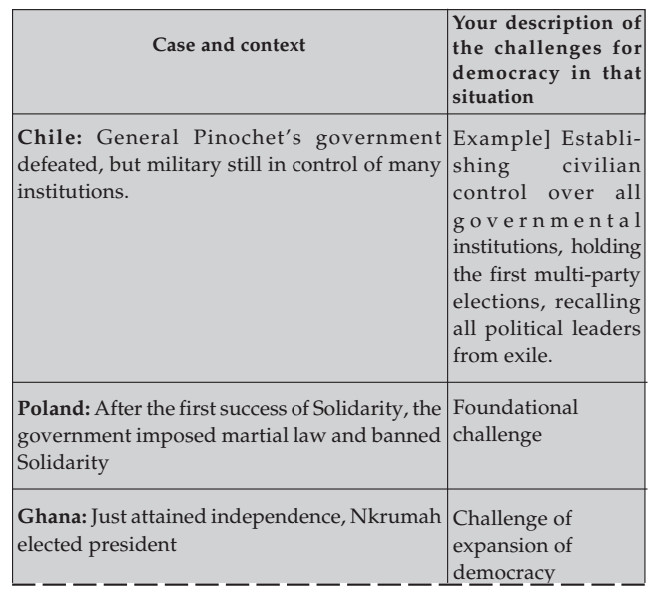
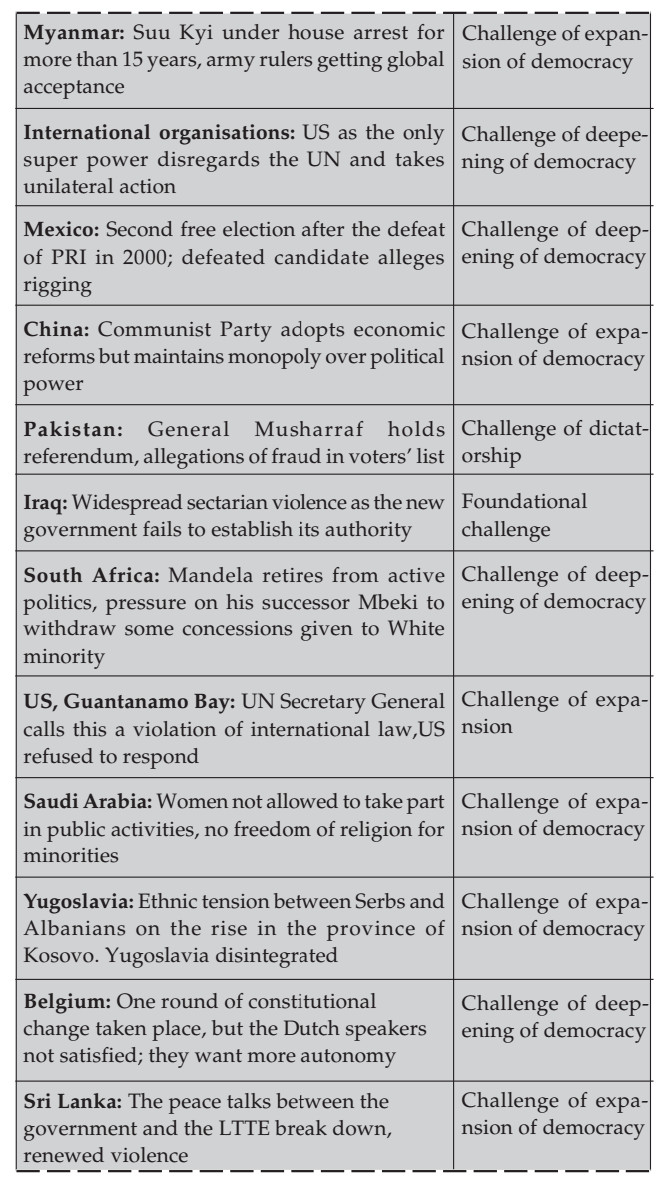
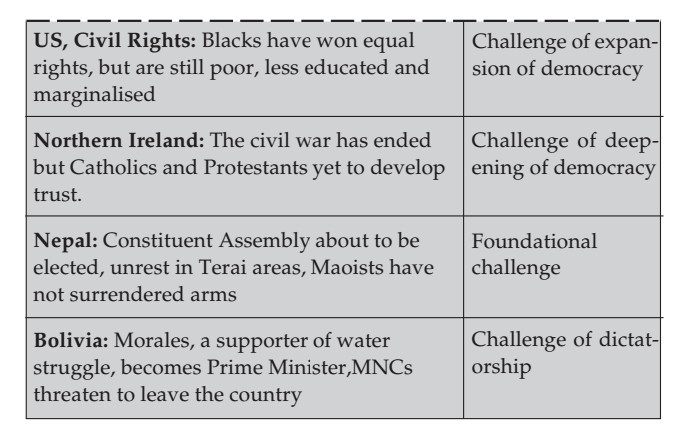
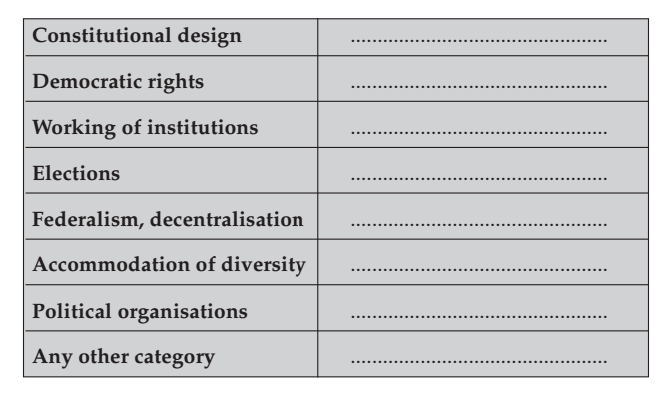
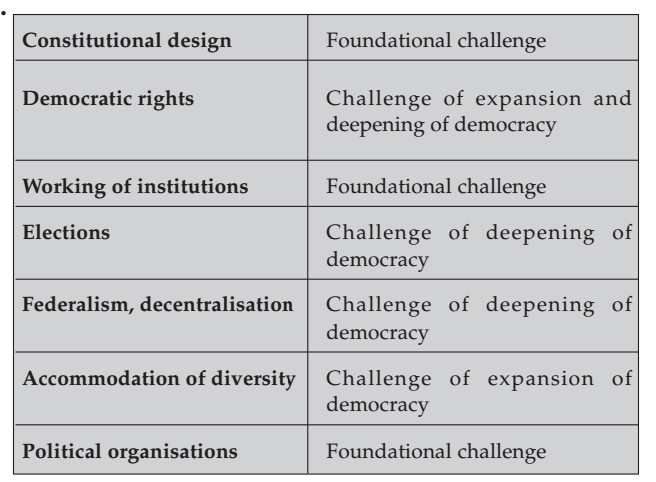
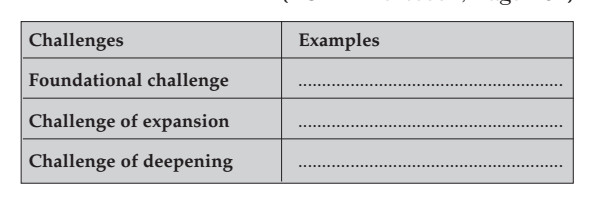
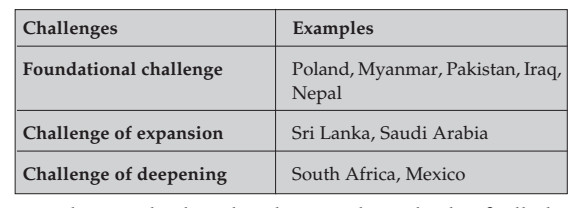
Leave a Reply